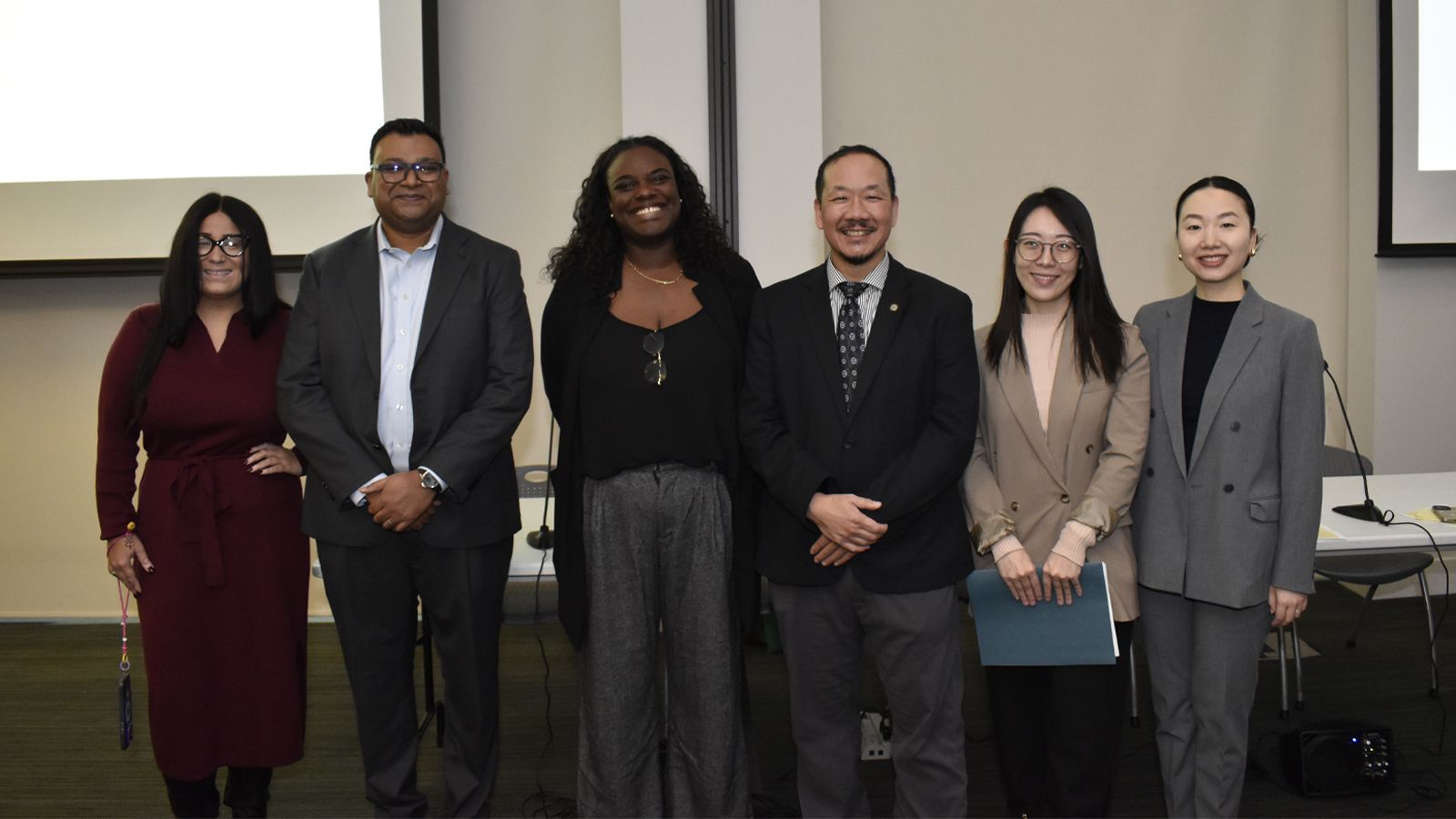Feeding yourself in New York City on a budget of $7 a day. Finding resources for free groceries. Balancing the need to spend money on food with other necessities such as rent, transportation, and utilities.
The four million New Yorkers — including thousands of Hunter students and their families — who receive food aid through the federal Supplemental Nutrition Assistance Program face some unpleasant realities in the best of times.
Now, imagine the hardships that came in November with the federal shutdown and disruption of the aid?
It was no idle exercise for Hunter. As an anchor institution for New York City, Hunter acts to promote the welfare of the larger community. Hunter’s Department of Nutrition and Public Health (part of the School of Health Professions), NYC Food Policy Center, and Silberman School of Social Work addressed the communal impact of the government-precipitated crisis — especially as it relates to students — with a panel discussion on November 10. The panel took place at the Silberman School in East Harlem
“Food is a basic need, not a privilege, and when that basic need goes unmet, students are unable to focus in classes, families struggle to put groceries on the table, and communities bear the weight of inequity,” said Health Professions Dean Khursheed Navder in introducing the panel. “I am truly honored to lead a school that recognizes that students’ academic success is inseparable from meeting their basic needs.”
Food Policy Center Executive Director Mark Chatarpal, Assistant Dean for Student Affairs Miesha Smith, professors, nonprofit leaders from East Harlem, and a student all spoke about the needs they are seeing in neighborhoods and on campus.
Director of nonprofit East Side Soul Jocelyn Caceres, Silberman Associate Professor Keith Chan, Assistant Nutrition Professors Wen-Yuan Wang and Jera Zhang, and student Savannah Sclafani reported on how the cuts were affecting various populations. Chatarpal moderated.
Older adults, immigrants, and children depend on food aid the most, a $100 billion program that feeds about 43 million Americans for a little less than $200 a month.
But campus needs are growing. Several years ago, Hunter opened the Purple Apron Food Pantry at the 68th Street campus, which offers all CUNY students fresh, packaged, and frozen groceries and toiletries six days a week. Every CUNY has a pantry open to anyone with a CUNY ID. Hunter also has two vending machines at the Silberman student lounge, containing ready-to-eat meals and snacks as well as fresh produce for students in need.
“We are seeing shocking numbers of visits,” Smith said regarding the food pantry.
Until a decade ago, colleges such as Hunter worked in partnership with nonprofits to provide commuter students with options in their neighborhoods. But Hunter found that, because of classes, students would miss food pantry hours at home.
What started to fill food gaps for commuter students turned into a vital resource. During the last academic year, the Purple Apron Food Pantry had 8,000 visits — more than double the number of the year before. This year, the number is on pace to double again, Smith said.
Because of arrangements with the Food Bank of New York and other nonprofits, the Purple Apron buys its goods for much less money than the cost at retail.
Hunter is conducting an appeal for the pantry, which has garnered more than $75,000 as of this writing.
Hundreds have stepped up.
“As an educator and a Hunter alum, I wanted to do what I could to meet the needs of students during this time,” said alumna Kathleen Granados MFA ’20. “I’m happy for the opportunity to support the health and well-being of the Hunter community, as well as all those who visit the pantry from CUNY schools.”
To make a gift to the Purple Apron Food Pantry, click here.
You also can support the food pantry and other areas of campus affected by shifts in federal funding through Hunter College’s Giving Tuesday campaign.


